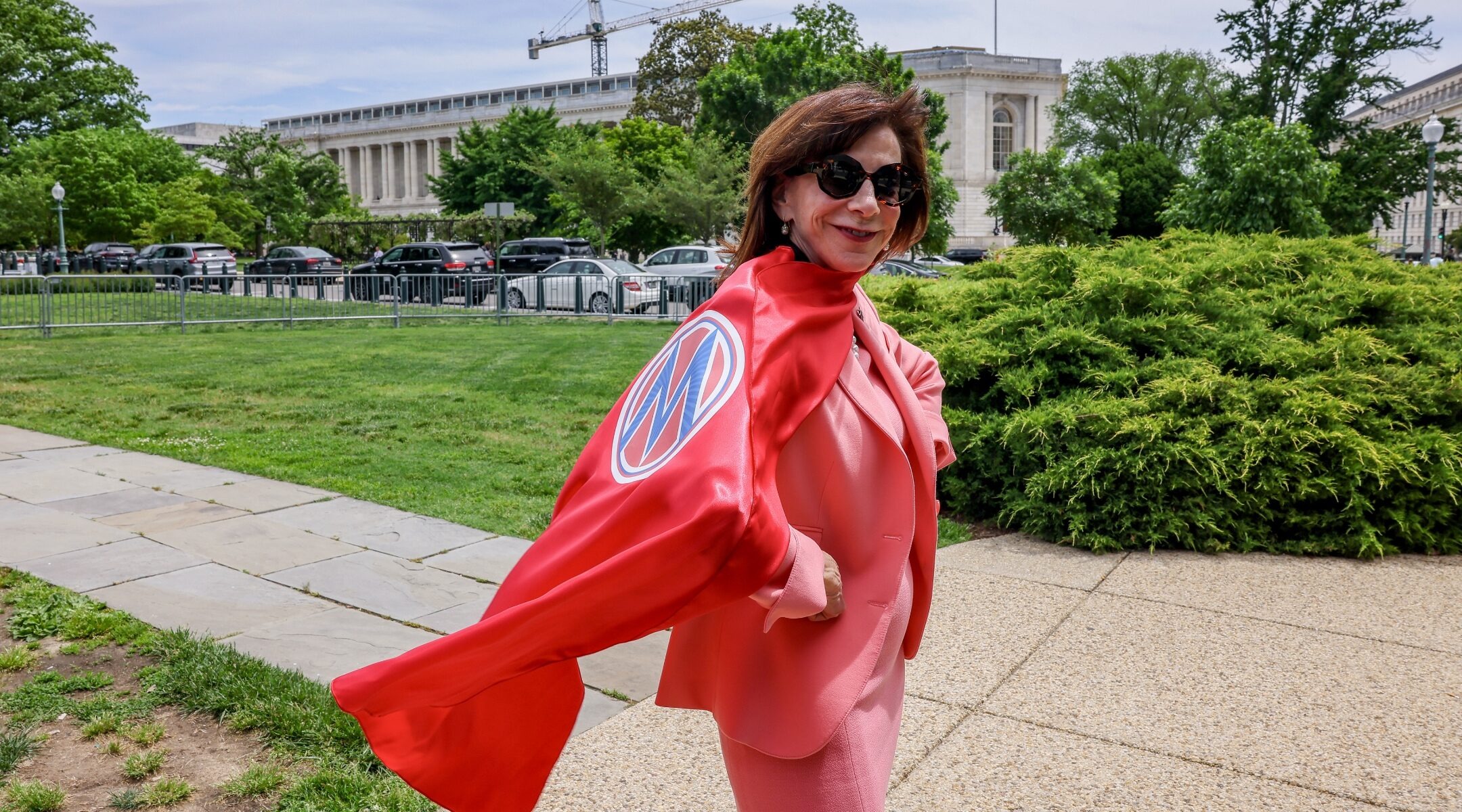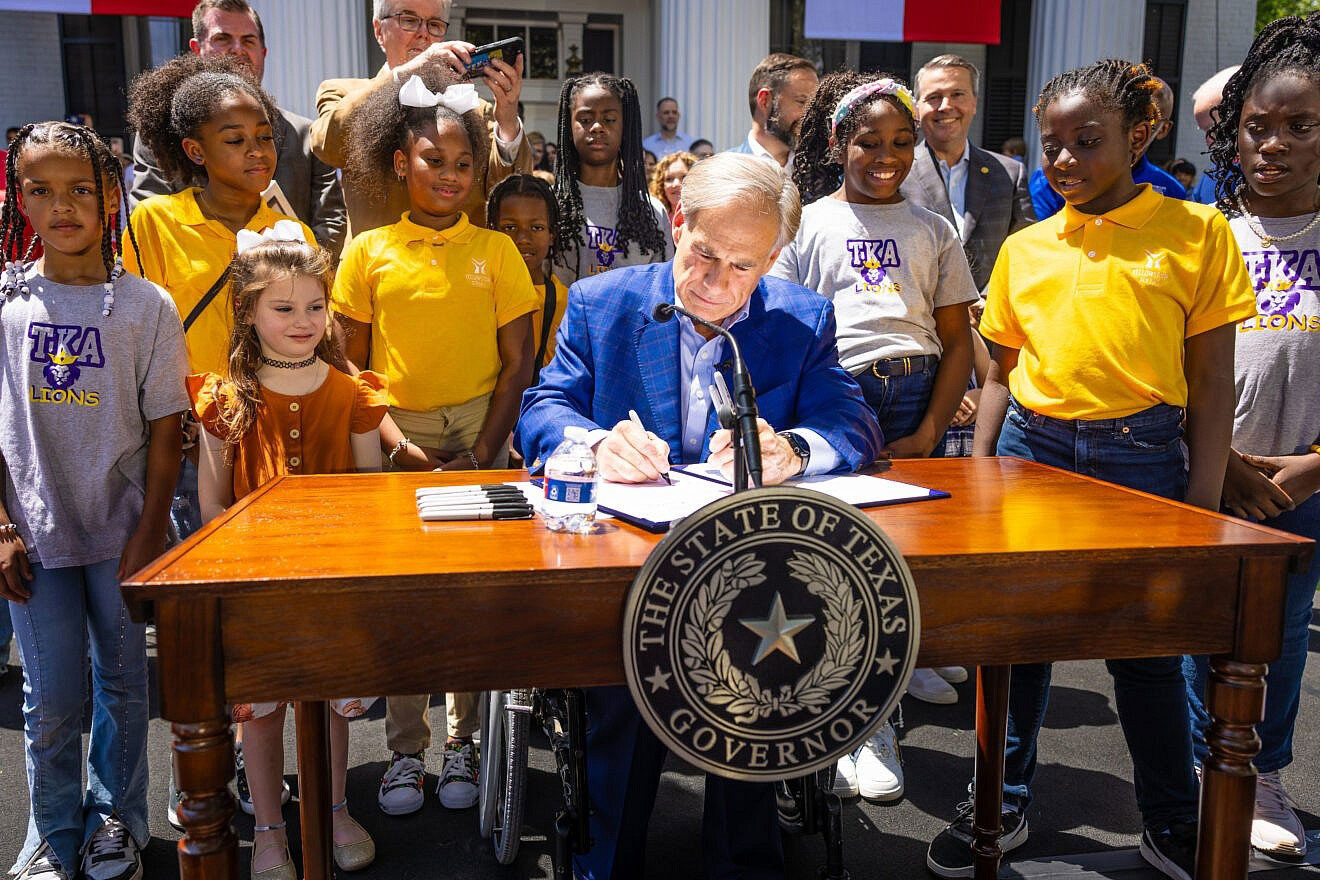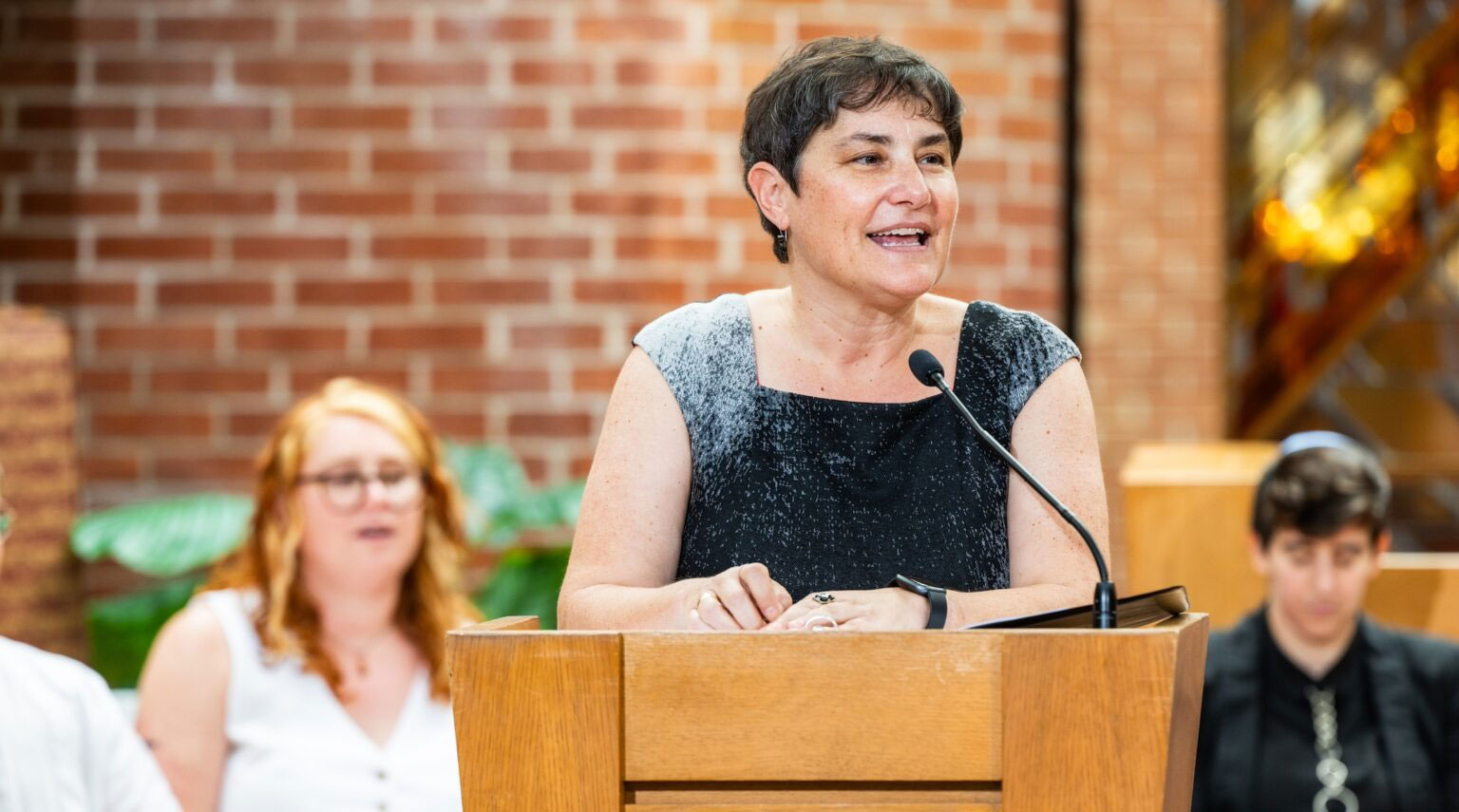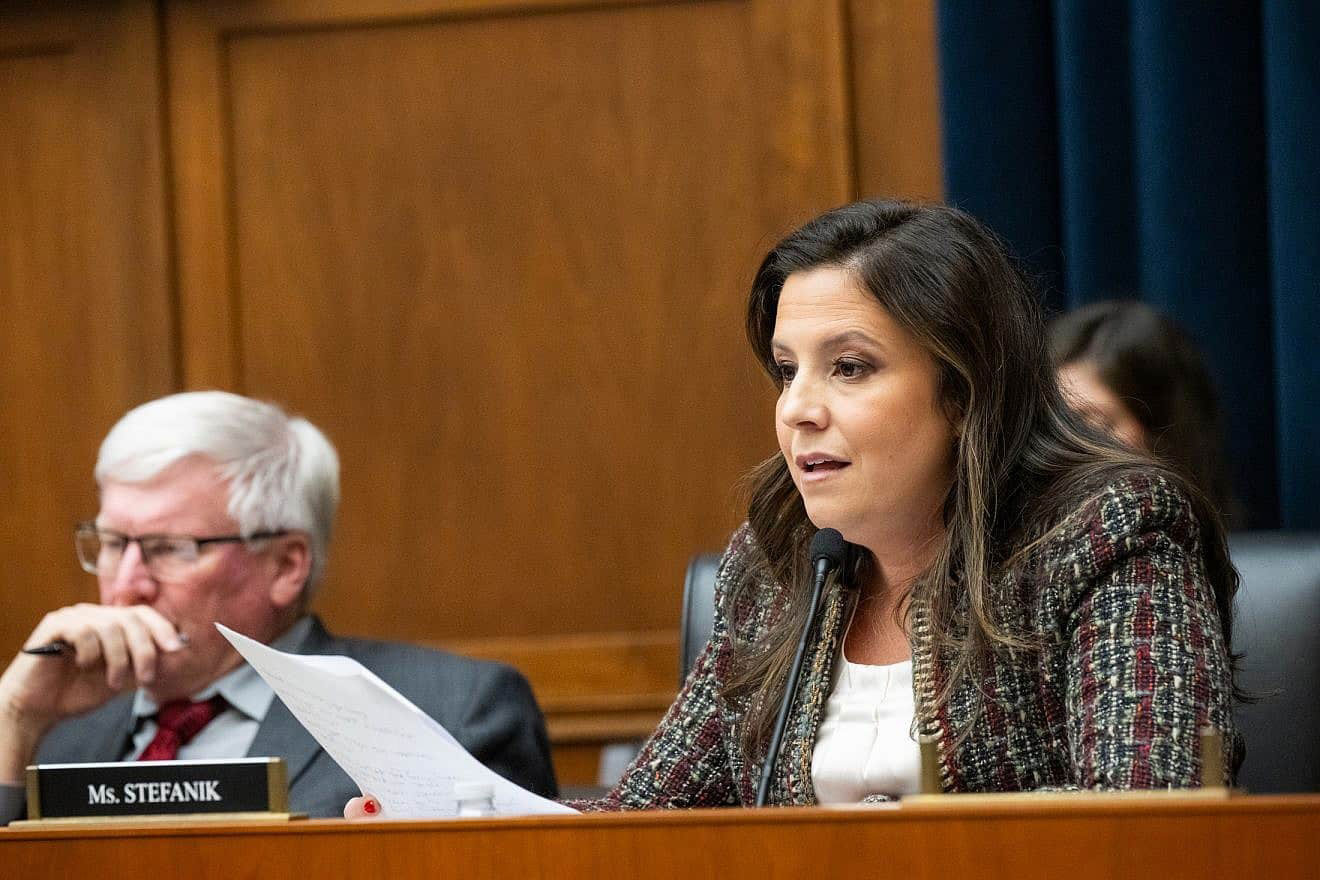(JTA) — More than 60 Jewish organizations across the political spectrum are lining up behind a bill that would establish a coordinator of government efforts to fight antisemitism.
The joint effort is an expression of American Jewish political solidarity not seen in years. Groups that signed a letter supporting the bill range from J Street on the left to the Zionist Organization of America on the right. The signatories include organizations whose leaders rarely share the same stage and who have accused each other at times of enabling antisemitism. They include Reconstructionist, Reform, Conservative, Modern Orthodox and haredi Orthodox groups.
The letter, sent Wednesday to House Speaker Mike Johnson and Minority Leader Hakeem Jeffries, acknowledged the ideological range of the signatories and said they “are united in our deep concern over the exponentially rising incidents of antisemitism in this country.”
It quoted statistics from the Anti-Defamation League and American Jewish Committee documenting a sharp spike in antisemitism, and Jewish concern about it, since the outbreak of the Israel-Hamas war on Oct. 7.
“As you know, our community is currently facing a historic crisis of antisemitism not seen in a generation,” the letter said. “This historic rise in antisemitism is being directly felt by Jews around the country.”
The letter was spearheaded by the Jewish Council for Public Affairs along with the ADL, the Reform Movement’s Religious Action Center, the AJC and the National Council of Jewish Women. Such wall-to-wall Jewish comity has not been expressed since at least the George W. Bush administration.
The bill, called the Countering Antisemitism Act, is sponsored by North Carolina Rep. Kathy Manning and has bipartisan support. It would create a national coordinator to oversee the implementation of the Biden administration’s strategy to combat antisemitism. The coordinator would also receive an annual assessment of violent antisemitism across the country from law enforcement and intelligence agencies.
The position would complement the State Department’s antisemitism envoy, currently Deborah Lipstadt, who focuses on monitoring and combating anti-Jewish bigotry abroad.
The bill would also designate an official in the Department of Education to monitor antisemitism on campus. The letter from the Jewish groups also said the bill would “promote Holocaust education, help us understand the threat of antisemitic violent extremism, as well as the spread of antisemitism online, and celebrate Jewish life by designating Jewish American Heritage Month in law, and more.”
Many of the groups joined a mass rally in Washington, D.C., last November supporting Israel following Hamas’ Oct. 7 attack and the ensuing war in Gaza. But even there, there were divisions among the groups over slogans and speakers.
Manning, a Jewish Democrat who once chaired the Jewish Federations of North America and who is retiring from Congress, has expressed frustration that the House’s Republican leadership has yet to advance the bill despite the broad support it has drawn. Speaking this week to the Jewish Democratic Council of America, she said Republicans appeared to be more interested in theater than in passing laws.
She referred to the high-profile Republican-led hearings where members of Congress have grilled the presidents of elite schools about campus antisemitism — questioning that led to the resignations of two Ivy League university presidents.
She singled out for ridicule the committee’s Republican chairwoman, her fellow North Carolinian Virginia Foxx, and New York’s Elise Stefanik, who has taken a lead in the questioning. Manning called those congresswomen “mean girls” and compared the hearings to reality TV.
“I want to talk to you about the value of education, which we all know has been a key value for the Jewish community,” Manning said. “I sit on the Education and Workforce Committee. For those of you who have not been paying attention, that committee has become something akin to the reality show ‘Survivor’. We have had contestants from a variety of universities trying to hold on to their jobs, while defending themselves against the most unlikely gladiators against antisemitism: mean girls Virginia Foxx and Elise Stefanik.”
Jewish groups have praised Stefanik for her tough questions of academic leaders but have also noted her past embrace of anti-immigrant rhetoric that echoes an antisemitic conspiracy theory.
The House this month passed a separate bill, the Antisemitism Awareness Act, that would define antisemitism for the purpose of applying it in civil rights cases brought against educational institutions.
That bill, however, received a surprising amount of opposition in the House and is facing resistance in the Senate, insiders say. The prospects of a Senate defeat may help spur backing for Manning’s bill, especially given the overwhelming Jewish support evident in the letter.
At the heart of the fighting over the Antisemitism Awareness Act, on the left and the right, is how it hews to the International Holocaust Remembrance Alliance’s widely adopted yet controversial definition of antisemitism. Progressive Democrats who opposed the bill say the IHRA definition could chill and limit legitimate criticism of Israel. Conservatives on the right who endorse the charge that Jews killed Jesus — which has been disavowed by several large Christian denominations — say it renders that claim antisemitic.
Manning’s bill finesses those divisions by politely nodding to the IHRA definition as useful — and then citing as its basis a far more concise and uncontroversial definition of antisemitism that appeared in a 2020 Holocaust education law.
Yet another bill, which would apply IHRA as a definition across a number of agencies, not just the education department, has only Republican backing and is seen as dead in the water.





